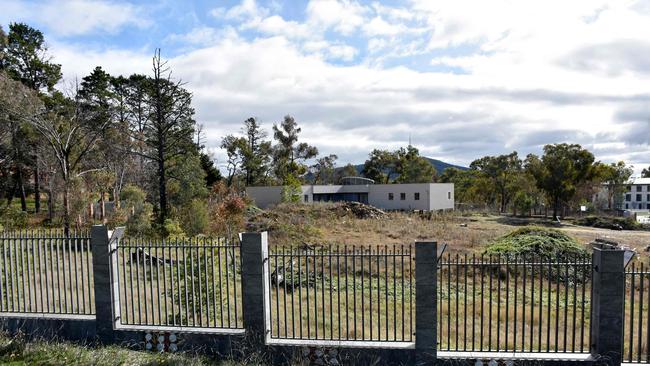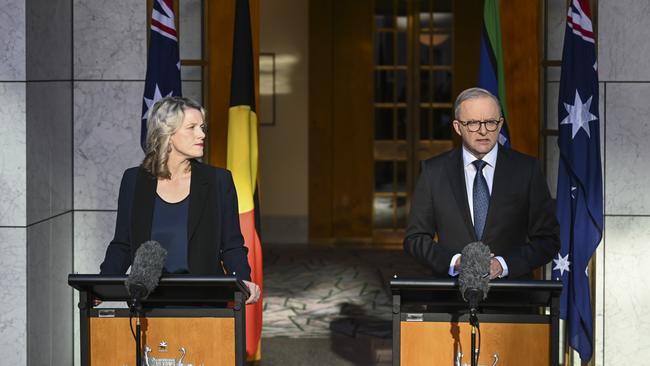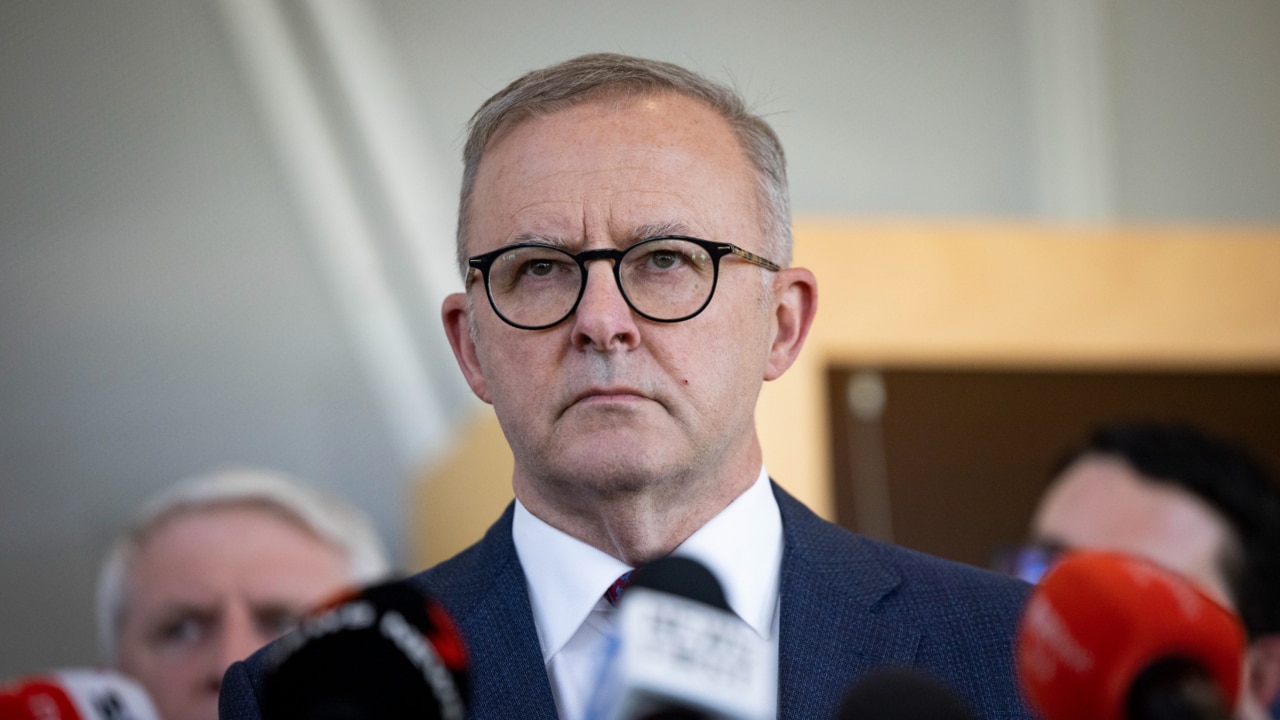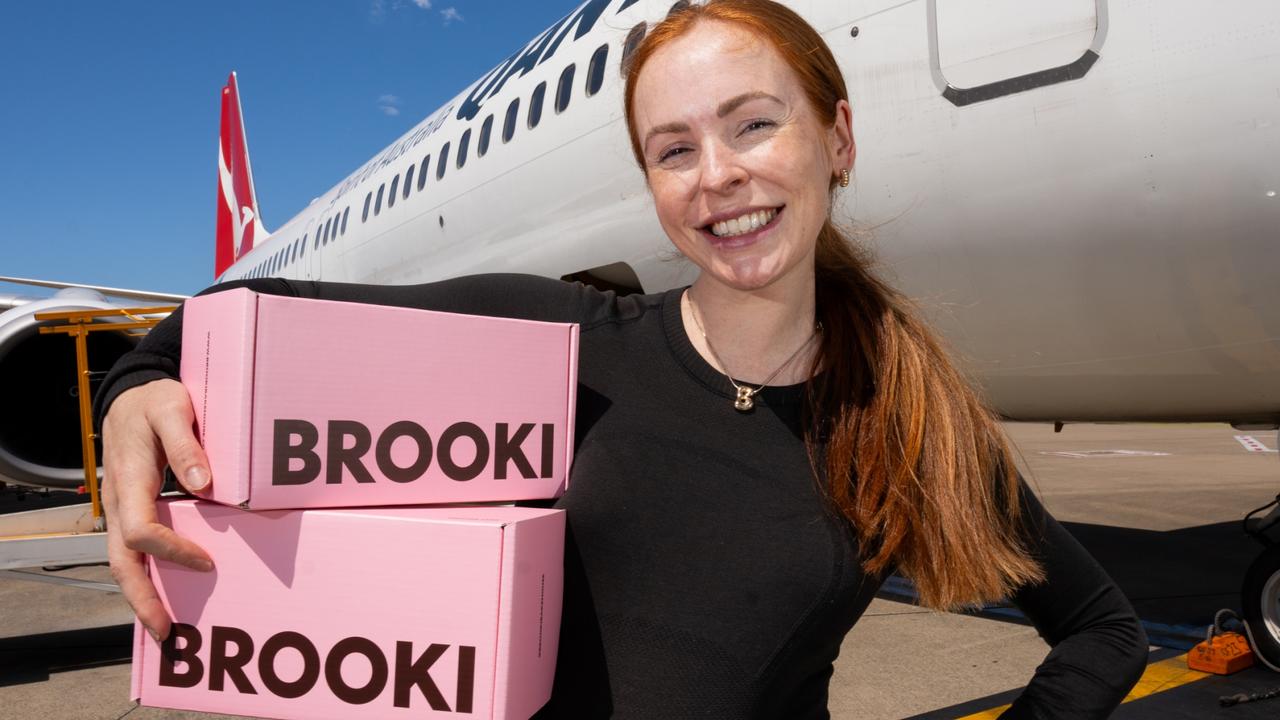New law passed to boot Russia from Canberra embassy site
Russia has been legally stripped of its planned new Canberra embassy site after intelligence agencies warned its use of the site posed national security risks.

Russia has been legally stripped of its planned new Canberra embassy site after intelligence agencies warned Vladimir Putin’s regime could use the block near Parliament House to threaten the nation’s security.
Anthony Albanese said the block’s proximity to parliament could enable “potential interference” by Russia, but refused to say whether the Chinese Embassy’s location, just metres away, also presented national security risks.
Legislation was rammed through both houses on Thursday and rushed to the Governor-General for royal assent to prevent any diplomatic presence on the site, in a blow to Ukraine which had hoped to secure the land for its own embassy.
The Prime Minister said the government moved quickly to ensure the Russian Federation could not retain the block after Moscow won a federal-court case last month challenging its eviction from the site.
“The Government has received very clear security advice as to the risk presented by a new Russian presence so close to Parliament House,” he said.
Mr Albanese said the decision was made in response to “the capability that (the location) would present in terms of potential interference with activity that occurs in this Parliament House”.
He did not elaborate, and security analysts were divided on the suitability of the site for signals intelligence gathering.
Asked whether he had received security advice on the proximity to parliament of the nearby Chinese Embassy, Mr Albanese said the government was “dealing with this very specifically and it‘s based upon very specific advice”.

The Chinese diplomatic post and the now-former Russian embassy site are both close to a nondescript building which is leased to the Attorney-General‘s Department and is said to be used by Australia’s national security agencies.
Russia retains its current embassy in Griffith, which was reportedly monitored during the Cold War from a funeral parlour across the road.
The National Capital Authority terminated Russia’s lease on the new site last August under its “use it or lose it policy”, after it failed to build an embassy there over the course of 14 years.
“The block is a premium site in central Canberra. Ongoing unfinished works detract from the overall aesthetic, importance and dignity of the area reserved for diplomatic missions and foreign representation in the national capital,” NCA chief executive Sally Barnes said at the time.
But the Federal Court ruled on May 31 that the Commonwealth’s attempt to terminate the lease was “invalid and of no effect”.
It restrained the NCA from entering the land, taking possession of it, or interfering with the Russian Federation’s “quiet enjoyment” of the site.
Mr Albanese said the decision left the government with no alternative but to legislate.
“Today‘s decision is one taken in the national security interests of Australia, and I thank the Coalition and crossbenchers in the House and the Senate for their co-operation in this matter,” he said.
The Australian understands Russia had sought to bring in its own contractors in three years ago to work on the site but the Department of Home Affairs had denied them visas, believing they would include members of Russia’s Federal Security Service.
Strategic Analysis Australia director Michael Shoebridge, a former senior Defence official, said having a large Chinese or Russian diplomatic facility so close to Parliament House “ does have some security implications”.
“You can collect electronic emissions from diplomatic premises. This is something that everybody knows about, and it was actually prolific during the Cold War,” Mr Shoebridge said.
But another well-informed source, who declined to be identified due to the sensitivity of the matter, said the sites presented an “acceptable risk” because they were both down hill the parliament.
“Terrain plays a factor,” the source said. “It would be an acceptable risk, but well done to Anthony Albanese for kicking the Russians out.”
The chair of the Parliamentary Joint Committee on Intelligence and Security, Peter Khalil, said Australia was facing a surge in security threats from adversaries seeking to disrupt the nation’s system of government.
“I think it is probably true to say and public knowledge … that the level of espionage, political interference, sabotage even, are at unprecedented levels and these are from state actors as well as non-state actors,” he told the ABC.
“And there are many adversaries who seek to diminish our democratic processes and our system of government and that is across the board and it is really unparalleled.”





To join the conversation, please log in. Don't have an account? Register
Join the conversation, you are commenting as Logout